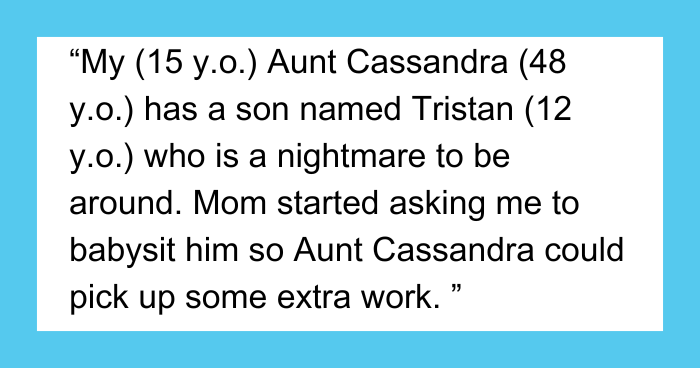Teen Refuses to Babysit Bratty Cousin Who Lies to Get Them in Trouble
OP (15) has to babysit their cousin Tristan (12) who causes lots of trouble, and then weasels his way out of the consequences. For example, Tristan lies to his mother, Aunt Cassandra, about what OP is doing, which ends up in OP getting in trouble for things she should not be punished for. Cassandra designed her post as something of a proud-mommy show-and-tell, sharing examples of what her strategy looked like in practice, such as step one: OP takes Tristan’s phone away until he does his homework, which leads to Step Two: Tristan tantrums, lies about OP’s friends trashing the house, etc. OP recorded the babysitting session, as a way of defending themselves, however Cassandra dismissed the audio by saying that Tristan’s behavior was because he was being recorded.
Even when OP tries to decline babysitting for Tristan, bringing up how manipulative he is and how they are getting unfairly treated, their mom forces them because Cassandra needs the money from this extra work. Finally, OP shut the whole thing down, telling Tristan he was “a lying little brat,” adding that if Cassandra can’t find good childcare, poor discipline might be the reason why, which got THEM grounded for saying that. But the whole situation — including his family’s welfare — under-input leads OP to wonder if they’re the bad guy for not babysitting Tristan.
Having a babysitter in the family can be extremely helpful for working parents

But being expected to watch their unruly cousin has pushed this teen to their breaking point
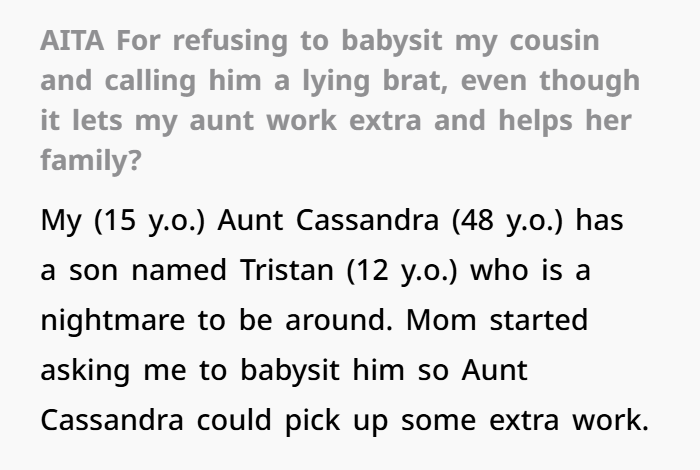
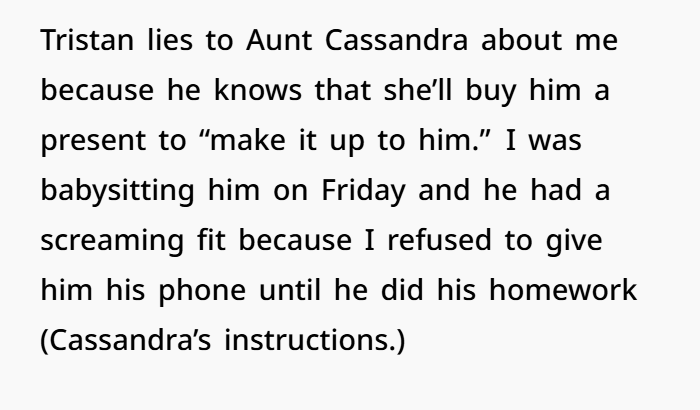

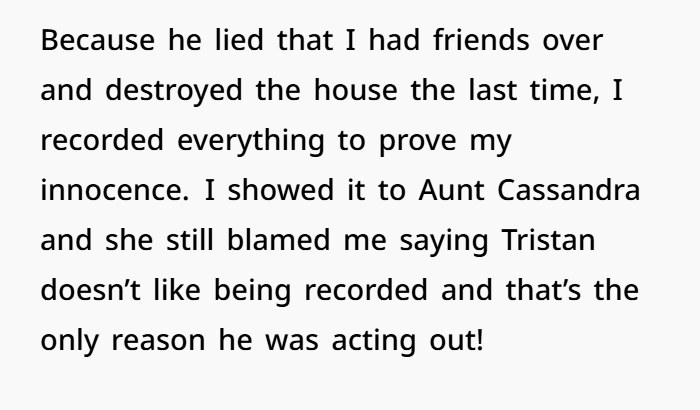
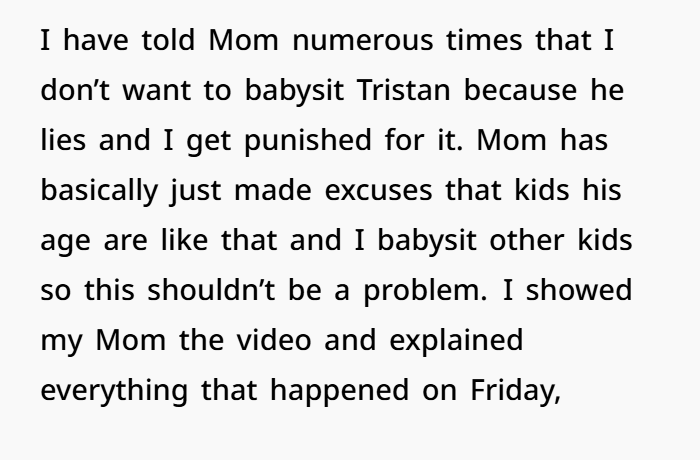
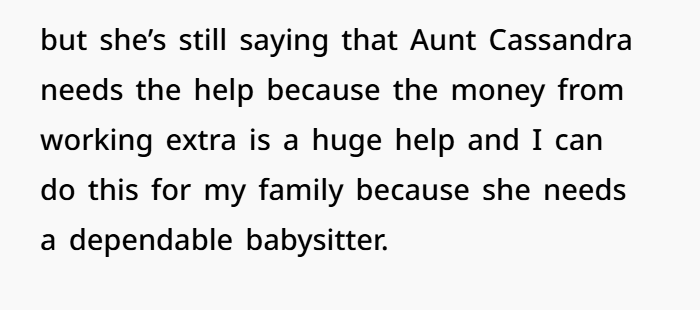

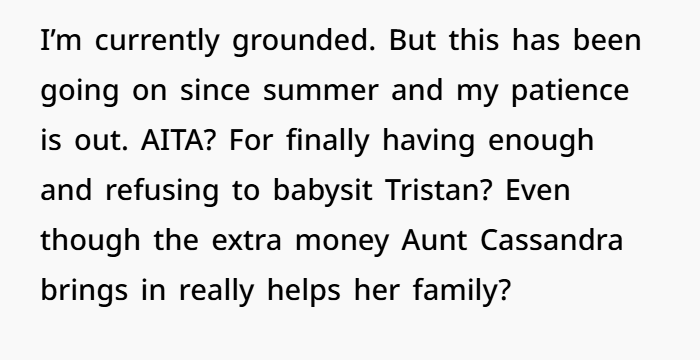
Boundaries, Family Obligations, and Emotional Labor
This story provides a jumping off point for discussing family obligations, boundaries, and the emotional labor that falls to teens in family dynamics.
The Emotional Toll of Babysitting Difficult Children
Caring for someone like Tristan, who finds a way to manipulate any situation in her favor, is horrible for any babysitter — especially a teenager. The child psychology research I’ve read suggests that this sort of controlling behavior arises from not having clear boundaries with consistent consequences when they are not respected. Rewarding Tristan with gifts for making up stories about OP only reinforces his poor behavior. This results in a harmful feedback loop, where OP, the caretaker, becomes the target of Tristan’s tantrum and lies. The constant need to justify your actions, compounded by the added burden of being held to a stricter set of rules than others, takes a toll on the self-esteem of a teenage—leading to a reluctance to act.
Setting Boundaries vs. Supporting Family
Many family responsibilities are accompanied by an implicit expectation that people will be selfless, particularly when it comes to financial stress. OP mother and Aunt Cassandra want OP to swallow all the shit because it is for the greater good of the family because we need to help one another and if OP lives with Tristan, things will be better But, that ignores the very concept of boundaries. Setting boundaries is not only vital to emotional sanity, but also for preventing resentment between family members. And even in doing that, OP has communicated their discomfort over and over again, provided evidence of their struggles with it, only to have their concerns dismissed.
Family should be the biggest support for an individual but not at the expense of the mental health and the sense of equity. OP is NOT selfish for wanting to stop babysitting after being treated like garbage for months now.
Parental Responsibility and Discipline
This, of course, is another layer of the problem, that Aunt Cassandra has not handled her son properly. The burden of maintaining Cassandra’s good behavior is on OP, while she pays little heed to effective parenting her child; relying on others to do the hard work and ignoring the root of the problem (Tristan unable to tell a lie!). So why not just put up with all of Tristan’s bullshit? That completely misses the point — his behavior is bad because he has nothing forcing him to be better. Similarly, OP’s mother demanding they keep babysitting Tristan is simply shifting the responsibility of a parenting problem onto the shoulders of a teenager.
Case Studies of Boundary-Setting in Families
Family boundaries are another sticky issue — soaked in guilt and conflict. Yet, positive instances with boundaries demonstrate that clarity and consistency make for a better world all around. For example, in cases of family mediation where teenagers are burdened with too much care, mediators may suggest that all parties engage in a discussion about expectations and responsibilities. Essentially, it spreads the accountability rather than putting it all on one person.
Readers were very supportive of the teen, and they joined in on the conversation to share more details
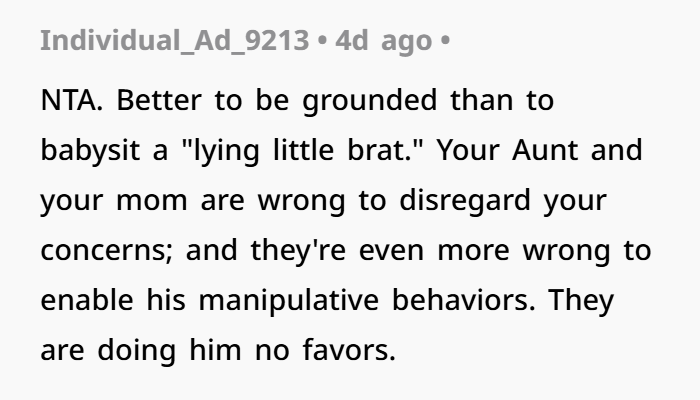

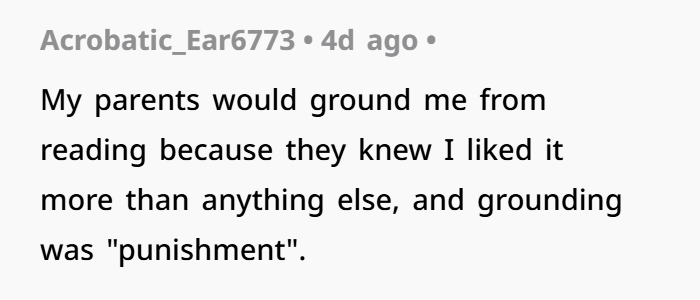

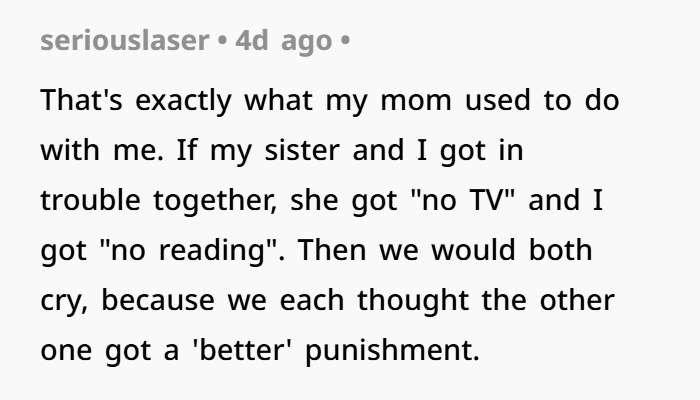
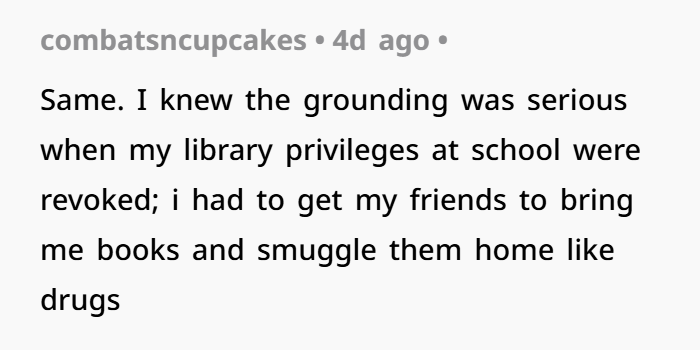
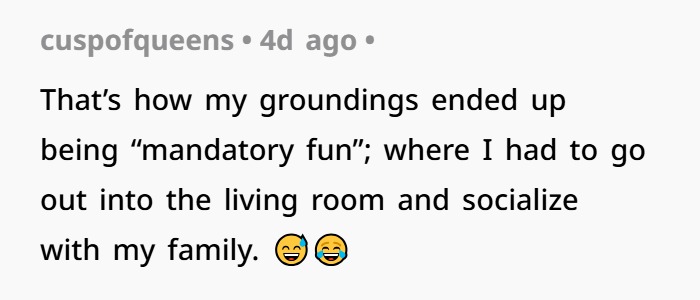
OP, you are Not the A-hole. Listen, you have every right to be upset, and you certainly are under no obligation to babysit Tristan when the adults keep messing up like they did here. You owe it to your child, to yourself, and to the rest of your family to set a limit on this kind of emotional labor. Helping family is a great thing but not at the cost of your mental peace. Setting boundaries is a healthy and mature choice because the alternative would be remaining in a toxic environment.

